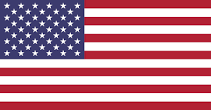Chemycal has been acquired by 3E
Learn MoreChemycal has been acquired by 3E
Learn MoreDiscover how Chemycal PRO helps you boosting your regulatory monitoring:

Division FF "HEALTH AND HUMAN SERVICES" of the Consolidated Appropriations Act - signed into law by President Biden at the end of 2022 - contains a subtitle on medical devices which main sections are summarised hereafter:
SEC. 3301. DUAL SUBMISSION FOR CERTAIN DEVICES
The Federal Food, Drug, and Cosmetic Act is amended to allow the sponsor of a device that has been authorized for emergency use by the US Food and Drug Administration (FDA) to submit a single submission containing the information needed for a request for classification under section 513(f)(2) of the Act, as well as sufficient information for the FDA to determine whether a laboratory examination or procedure associated with the device satisfies the criteria to be categorized under section 353(d)(3) of the Public Health Service Act. This provision applies to devices for which the FDA has deemed the laboratory examination or procedure to be in the category of examinations and procedures described in section 353(d)(3) of the Public Health Service Act.
SEC. 3302. MEDICAL DEVICES ADVISORY COMMITTEE MEETINGS.
The US Secretary of Health and Human Services shall convene one or more panels of the Medical Devices Advisory Committee at least once per year to provide advice on topics related to medical devices used in pandemic preparedness and response, including in vitro diagnostics. The panels must include at least one population health-specific representative. This provision will expire on October 1, 2027.
SEC. 3305. ENSURING CYBERSECURITY OF MEDICAL DEVICES
This section outlines requirements for ensuring the cybersecurity of devices that are submitted for approval or clearance by the FDA under certain sections of the Federal Food, Drug, and Cosmetic Act. These requirements apply to devices that meet the definition of a "cyber device," which is a device that includes software, has internet connectivity, and contains technological characteristics that could be vulnerable to cybersecurity threats. The sponsor of an application or submission for such a device must submit to the FDA a plan for monitoring and addressing postmarket cybersecurity vulnerabilities and exploits, design and maintain processes for ensuring the device and related systems are cybersecure, provide a software bill of materials to the FDA, and comply with other requirements as necessary to demonstrate reasonable assurance that the device and related systems are cybersecure. The FDA may exempt certain devices or categories of devices from these requirements. The amendments made by this regulatory text will take effect 90 days after the date of enactment and will not apply to applications or submissions submitted before that date. The FDA, in consultation with the Cybersecurity and Infrastructure Security Agency, is also required to review and issue guidance on device cybersecurity for industry and FDA staff within two years of the date of enactment and periodically thereafter as appropriate.
SEC. 3306. BANS OF DEVICES FOR ONE OR MORE INTENDED USES
The Federal Food, Drug, and Cosmetic Act is amended to allow the FDA to ban devices for one or more intended uses.
SEC. 3307. THIRD PARTY DATA TRANSPARENCY
The FDA is amended to request access to datasets, inputs, clinical or other assumptions, methods, analytical code, results, and other components underlying or comprising the analysis, conclusions, or other findings provided by third parties that the FDA seeks to rely on in regulatory decision-making with respect to devices. The FDA must also provide a summary of this information to the manufacturer or manufacturers subject to such decisions, to the extent practicable and subject to the protection of confidential commercial information, trade secrets, or personally identifiable information. The FDA must also submit a report to Congress and publish on its website by September 30, 2023, and biennially thereafter, on the number of postmarket device signals communications issued by the FDA, the sources of data for these signals, and how these signals were revised or resolved. This provision does not delay any regulatory decision-making or other actions by the FDA.
SEC. 3309. SMALL BUSINESS FEE WAIVER.
The Federal Food, Drug, and Cosmetic Act is amended to allow the FDA to waive the fee required for the annual registration of an establishment if the FDA determines that the establishment is a small business and paying the fee would represent a financial hardship. A small business is defined as an entity that reported $1,000,000 or less of gross receipts or sales in its most recent Federal income tax return, including returns of all affiliates. To qualify for the fee waiver, a small business must submit a copy of its most recent Federal income tax return and returns of its affiliates, or a signed certification and a certification from the national taxing authority if the business has not previously submitted a Federal income tax return. The FDA is also required to establish a process for small businesses to reapply for the fee waiver every three years, and to report to Congress on the number of small businesses granted a fee waiver and the total amount of fees waived. This provision will take effect on October 1, 2024.
2013 © MyChemicalMonitoring. ALL Rights Reserved. About Us | Terms and Conditions